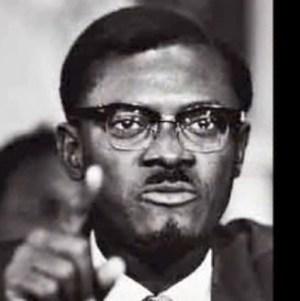
Patrice Emery Lumumba – First only elected prime minister of the Congo
It is difficult to refer to the recent and past history of the Democratic Republic of Congo [DRC] without talking of the Congolese nationalist Patrice Lumumba. Murdered on February 11th, 1961 only aged 35 years old and 7 months, his status has become in DRC collective conscience and across the world as of someone who stood up firmly even in death for the interests of his compatriots against those of foreigners.
There are several theories about who killed Patrice Lumumba: CIA [US], Belgians, and now MI6. Congolese politicians particularly from Katanga and even Kasai provinces who benefited from the colonial structures of exploitation of the country’s resources were also among his worse enemies because he intended to nationalize the sources of national wealth. For that reason they could’ve also had their hand in the machinations to get rid of him.
There can no longer be any doubt that the US, Belgian and Congolese governments shared significant responsibility for the assassination of Lumumba. US had somehow as much, if not more, a strong presence in the Congolese capital as Belgium when the Congolese leader was murdered. His political and physical elimination involved several interests and at different levels including even those not usually known such as Canadian and British.
Too national for many external and Congolese elite stakeholders to the country’s wealth, after the independence, he needed to be removed from power in one way or another. He was murdered only 2 months in office as the first democratically elected prime minister. His political party le Mouvement National Congolais [MNC] had nationally gathered most of the popular votes and put him in the country’s political leadership.
Consequences of the assassination
- The Belgian opposition of settled colonials to the authority of Patrice Lumumba was instrumental in creating general insecurity across Congo. The new leadership called upon the UN to help bring peace. US were the major financier and political supporter of the UN peacekeeping force that came to control most of the country. CIA ‘Project Wizard’ covert action program would dominate the post-Lumumba Congolese regime.
- Covert CIA actions against the Lumumba government, often dovetailing with Belgian ones, culminated in Colonel Joseph Mobutu’s military coup, which was ‘arranged and supported and indeed managed’ by the CIA alone, according to Devlin’s private interview with the Church Committee staff.
- We see a similar scenario today. After the assassination of Laurent Desire Kabila in 2001, UN peacekeepers [MONUSCO previously MONUC] who came following the general context of instability created in DRC after the Rwandan genocide of 1994, are strongly influenced and controlled by the US. – We all remember the role US Ambassador Susan Rice has played so far blocking any resolution going against US interests in the region.
- The murder of Patrice Lumumba, the most dynamic political leader the Congo has ever produced, was a critical step in the consolidation of an oppressive regime. It crystallized an eventual 35-year US commitment to the perpetuation of that regime, not just against Lumumba’s followers but against all comers. In the end, Mobutu’s kleptocracy would tear civil society apart, destroy the state and help pave the way for a regional war that would kill millions of people.
- The murdering of Lumumba has created a dangerous precedent in Congolese politics by considering the fact that political change could be operated through assassination of leaders. In 1997, Mobutu was forced into exile at the arrival of Laurent Desire Kabila but the latter was assassinated to pave way to a weak personality that the West could work with to preserve its interests in the country.
- What the period that followed Lumumba assassination has demonstrated is that new leaders for Congo had to have the support of external interests to be able to rule over DRC. What external interests wanted for DRC was what would prevail – Mobutu stayed in place for 32 years in power. He was instrumental in the destabilization of Angola with received support from the communist bloc during the Cold War.
- Another sad consequence is that since the 60s, the country could be led at the expense of nationals without problem as long as its leaders served external interests – this is what we experience today when one looks at the total instability and human tragedy which prevail in DRC for more than 2 decades
The question one could raise is: can this unfortunate path that Congolese politics have followed could be radically changed. There are historic and contemporary best practices that could be learned from. Patriotic Congolese, ready to make the necessary sacrifices, need to adopt Afghan or Vietnamese resilience against foreign interests.
